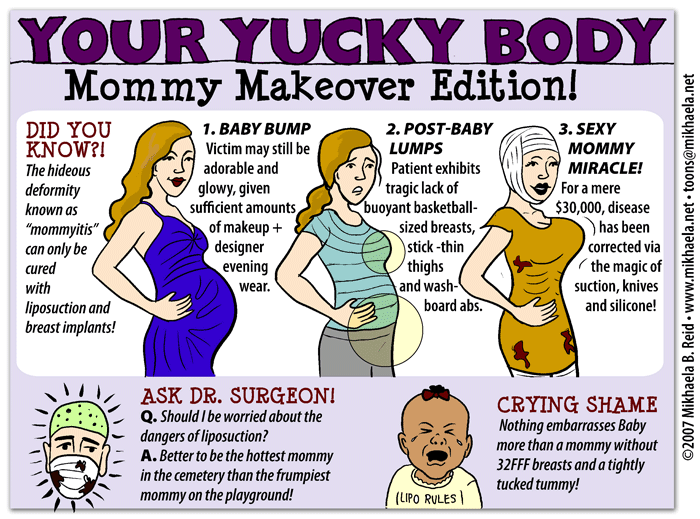Both feministing and Jezebel reported this week that a Thesaurus.com entry has shown up for the word "weaker" where the only two entries are "female" and "lady." The entry has been removed so you can view the screenshot here.
My guess is this was supposed to be some sort of a joke, since not only have those two synonyms been removed, but if you look up "weaker" in Thesaurus.com, there is no entry for it, period, only for "weak." From looking at the site, though, it doesn't seem to be user-generated so if it was a joke, it was an "inside" one or a hacker--I hope.
Not only am I bringing this up because it is so blatantly sexist, not to mention completely unproductive, say for a student needing a real synonym, but because this connects a great deal to my previous post about gendered-language and the denigration of the female that is encapsulated by the term pussy, but also because language politics in terms of gender/sexuality has been popping up in the news. A couple weeks ago, weakness was aligned with femininity in the recent commentary on Obama's bowling performance, and Christopher Hitchens' characterized (gay male) Andrew Sullivan as acting like a 'lesbian' in order to insult him.
This Thesaurus.com incident proves how deeply embedded these associations are in our culture-- whether it goes to show that woman is "officially" connected to the meaning of "weak" or that a hacker understood this cultural connection and attempted to embed it into institutional discourse.
The synonyms they provide for the "weaker" synonyms "female" and "lady" are seems to be taken from the actual entries for various woman-related terms. And as long as we're talking about language and thesaurus.com, lets do some word analyzing.
"female":
noun-amazon, babe, beauty, broad, cutie, dame, doll, dowager, duchess, femme, filly, fox, gal, gentlewoman, girl, lady, madam, mama, matron, petticoat, pinup, seductress, she, siren, sis, skirt, temptress, tomato, wench; adjective-changeable, child-bearing, delicate, effeminate, effete, fair, feminine, fertile, gentle, girlish, girly, graceful, ladylike, maidenly, matronly, modest, muliebral, oviparous, petticoat, pistil-bearing, pistillate, pure, refined, reproductive, sensitive, she-stuff, shy, soft, tender, twisty, virgin, vixenish, weak, womanish, womanlike
vs. "male":
noun- ape, beefcake, boy, bruiser, buck, bull, chap, dude, father, fellow, gent*, gentleman, guy, he, he-man, hunk, jock, john, macho man, papa, stud, tiger, tom, wolf; adjective-macho*, manful, manlike, manly, potent, virile
Notice anything? Perhaps an emphasis on sexual appeal in terms of being female and sexual action in terms of being male? Perhaps mostly terms of confidence, self-identity, and positivity for male while female terms are largely relational (not individual), object-like, or negative.
Looking closer at these listings for each...
- Most of the entries for female and male regarded adults. However, while "girl" is among the 12 listings for "female," "boy" is not listed among the 14 listings for "male." I suppose there's a significant difference between a boy and a male, whereas between a girl and a female, not so much.
- Curiously, "men's movement" and "misogynist" is part of "male" while women's movement is absent from the "female" listings.
- "Drag queen" is under the "female" listings (not male).
- "Matronly," and "daughter" are part of female, while "family jewels," "virile," and "male pattern baldness" are in the listings under "male" (though male pattern baldness is notably not part of the definition of male), rather than "fatherly" and "son."
- There is a separate entry for "gigalo" under the male listings, but not "prostitute" under female. Maybe that's because pinup, seductress, temptress and vixenish are all definitions of "female," and "call girl" is one of the first listings under the search for "girl."
So how about looking at "girl":
babe, baby doll, bird, blonde, bobby-soxer, boytoy, broad, butterfly, canary, chick, coed, cupcake, cutie, dame, damsel, daughter, deb, debutante, doll, female, filly, gal, jail bait, lady, lassie, mademoiselle, maid, maiden, minx, miss, missy, mouse, nymph, nymphet, piece, queen, schoolgirl, she, sis, skirt, spring chicken, teenybopper, tomato, tomboy, virgin, wench, witch, woman
vs. "boy":
buck, cadet, chap, child, chip, dude*, fellow, gamin, guy, half-pint*, junior, lad, little guy*, master, punk*, puppy*, runt*, schoolboy, shaveling, shaver*, small fry*, sonny*, sprout*, squirt*, stripling, tadpole*, whippersnapper*, youngster, youth
Looking at the girl/boy listings, of which there were 50+of each...
- In the first few for "boy" were such listings as "boy wonder," "office boy," "mama's boy," "playboy"--one for boy's employment, one for a non-boyish boy, one for a boy's intellectual genius, and one for a man's (active and selfish) sexuality.
- In the first few for "girl" we listings like "girl Friday," "bachelor girl," "call girl," "cover girl"--one for girl's employment, one for her marital status, and two for her (passive) sexuality.
- Note that tomboy (the arguably female equivalent of mama's boy) is part of the definition of girl whereas mama's boy it outside of the definition of boy itself. This here reveals how ingrained how threatening troubling gender roles is for hegemonic, heteronormative masculinity in a way that it isn't as much for girls...so long as they are also "reproductive" and "pinups."
- Several of the terms for girl referred to sexuality, while the terms for boy simply referred predominately to youth. Even further, the sexual terms are those of the ubiquitous male fantasy of girls' sexuality: virgin and nymph, whereas the sexual terms related to (adult) "female" tended to cluster around her dangerousness: temptress, seductress.
- The boy is primarily a young man, whereas "girl" seems to have a discursive function of its own, producing a sexualized and appearance-oriented image of young femininity that will be coupled with being wifely and motherly as an adult female.
You might be thinking, "it's just Thesaurus.com...what's the big deal?" Well, Thesaurus.com and Dictionary.com are heavily used and are considered reputable sources. And words mean things. Language shapes thought, and what we are able to think. So long as we overload terms for female with passivity, sexualization, objectification, and motherhood, and male with activity, active sexuality and prowess, we will continue to think of men and women in these terms. Think about it--what do we call a woman who's sexually active--slut, loose, whore? What do we call a passive male sex object? Um, hunk...maybe? Or meaty? And of course juxtapose those terms with "delicate," "weak," and "sensitive," and maybe now we're seeing this isn't just an issue of a word or two.
And when "mama's boy" is an anomaly of "boy" while "tomboy" is part of the definition of "girl," we have some serious heteronormativity in our language. And when nymph and virgin, doll and cutie are the way we think of young girls rather than simply being not-yet women, some light is shed on our incredible social problem of girls' sexualization and the sexualization of the young and vulnerable (even if legal) in general. And why is there no term for an intelligent girl, like we have for "boy wonder"....just "cover girl"?
When we can't think without words, when we understand that words do not simply reflect our thought but actually shape it, we can begin to understand that they're not just words.
*for more of the same, check out dictionary.com for "woman" and "man."
cross-posted to The Reaction
Keep Reading...

















